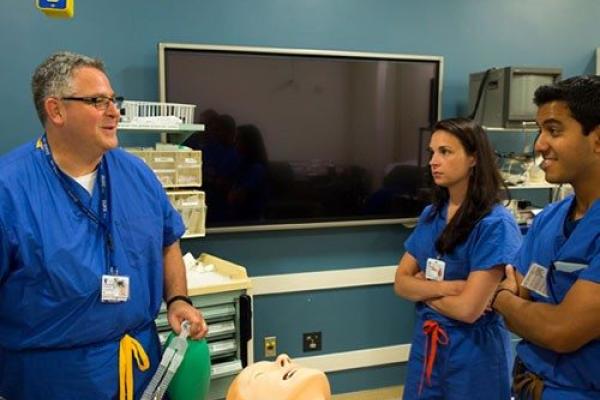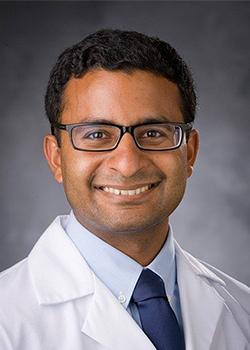
Q: What is the Simulation Experience During Residency?
A: Simulation-based education at Duke has three main functions during residency training. First, orientation. All anesthesia residents spend their first week at Duke in small groups practicing the basics of anesthesia preparation, induction, maintenance and emergence. Orientation allows students to ask questions in a controlled, safe environment so they are well prepared when they are in the clinical setting. The second feature is offering a consistent curriculum to all residents. New this year, we are implementing a three-year, graduated simulation curriculum covering all important events identified by faculty and residents as must-manage cases. The cases will cover general, vascular, transplant, pediatric, cardiac anesthesia and more. The goal is to make sure all residents learn and manage common and rare events in simulation, regardless of their clinical exposure. Finally, the third function of simulation is to verse our residents in principles of crisis resource management. Similar to the training aviation pilots receive, the CRM-simulation curriculum spans all three years of residency with increasing complexity. The course prepares our residents to be effective leaders and team members in times of crisis in the perioperative environment. We have additional exciting aspects of simulation including gaming and patient safety efforts that are currently being studied and will be implemented into the residency curriculum in the future.

